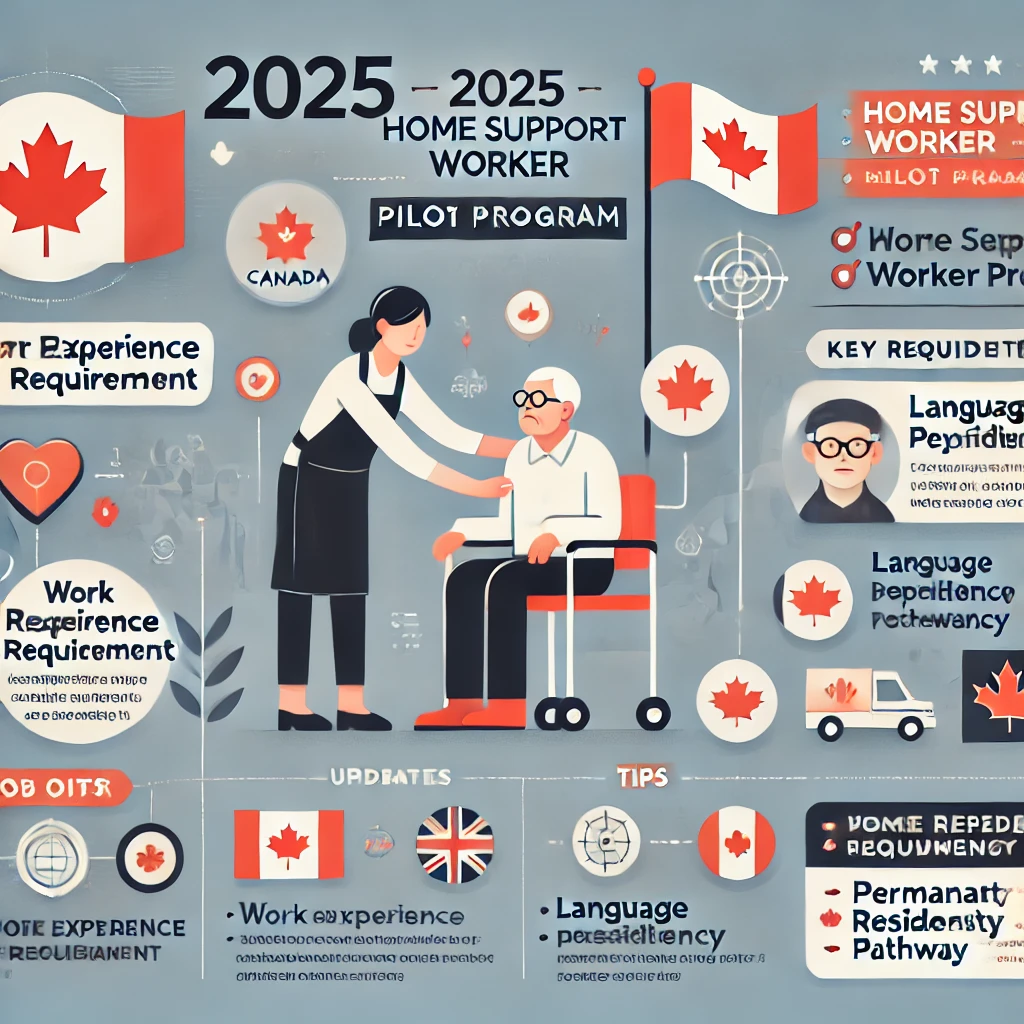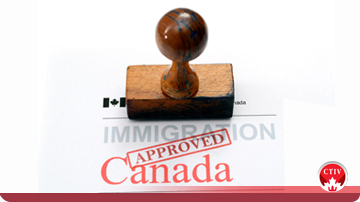Canada is well known for its spacious countryside, cultural diversity, superior education, healthcare system and economic stability, has one of the highest immigration rates and is considered one of the most popular destinations for Immigrants.

Canada’s Home Support Worker Pilot (HSWP) 2025 and Home Child Care Provider Pilot (HCCPP) 2025 are set to launch on March 31, 2025, replacing previous caregiver programs. These initiatives aim to streamline pathways to permanent residency (PR) for caregivers while addressing Canada’s growing demand for home care services. Below, we break down the latest updates, requirements, and processes for applicants and employers.
To qualify for the HSWP 2025, applicants must meet these criteria:
Language Proficiency: Minimum Canadian Language Benchmark (CLB) 4 in English or French
Education: A high school diploma (or foreign equivalent with an Educational Credential Assessment)
Work Experience or Training:
6 months of recent, relevant work experience (in Canada or abroad) OR
A 6-month credential in home care training
Job Offer Home Support Worker Pilot 2025: A full-time position from eligible employers (private households, home care agencies, or pediatric care providers). Recruitment agencies are excluded
Intent to Reside: Outside Quebec 19.
For the Home Child Care Provider Pilot 2025, similar requirements apply, with a focus on childcare roles under NOC 44100
Applicants must prepare:
IMM 5981 (Document Checklist): Includes proof of language proficiency, job offer (IMM 5983), educational credentials, and work experience/training certificates
Forms: IMM 0008 (PR application), IMM 1295 (work permit), and background declarations (IMM 5669)
Additional Documents: Biometrics, medical exams, and police certificates 12.
Employers must provide a genuine job offer using the IMM 5983 form, ensuring compliance with IRCC guidelines
Recent changes include:
Reduced Work Experience: From 12 to 6 months for PR eligibility
Foreign Experience Accepted: Work outside Canada now counts toward eligibility
Extended Timeline: Experience gained up to 36 months before applying is valid
PR on Arrival: Successful applicants receive PR status immediately, eliminating the need for prior Canadian work experience
Employers hiring under HSWP 2025 must:
Provide a full-time job offer (30+ hours/week) outside Quebec.
Avoid institutional settings (e.g., daycares or nursing homes)
No LMIA Required: Streamlining the hiring process.
Processing: Initial applications target 12 months, with a 6-month review after submitting proof of experience
Training: A 6-month home care training program can substitute work experience. Institutions like community colleges may offer accredited courses.
The 2025 pilots address critical labor shortages in Canada’s aging population while offering caregivers a faster, more flexible route to PR. Employers gain access to a global talent pool without LMIA hurdles, and workers enjoy job mobility and family reunification opportunities
Prepare Early: Gather language test results (IELTS/CELPIP) and educational assessments.
Monitor IRCC Updates: The “Applicants Not in Canada” stream will open later in 2025
Avoid Fraud: Use official IRCC checklists and consult licensed immigration professionals
For more details, visit IRCC’s Home Care Worker Pilots page or explore the document checklist (IMM 5981).
Stay informed and act swiftly—these pilot programs are a golden opportunity for caregivers aiming to build a future in Canada!
1. How can caregivers apply for permanent residence under the Home Support Worker Pilot 2025?
Caregivers can apply for permanent residence (PR) through the Home Support Worker Pilot (HSWP) 2025 by meeting these key requirements:
Achieving a minimum CLB 4 language proficiency in English or French.
Holding a high school diploma or equivalent (validated through an Educational Credential Assessment).
Providing proof of at least six months of relevant work experience or completing a caregiver training program in Canada.
Securing a full-time job offer from an eligible employer, such as home care agencies or private households, without requiring an LMIA.
Applicants must also submit necessary forms, including the Home Support Worker Pilot document checklist, and adhere to IRCC guidelines.
2. What are the benefits of applying for PR through the new caregiver pilots in 2025?
The new caregiver pilots, including the Home Support Worker Pilot (HSWP) 2025 and the Home Child Care Provider Pilot 2025, offer several advantages:
A one-step process for obtaining permanent residence for home care workers, eliminating the need for prior Canadian work experience.
Reduced language and education requirements, making it easier for caregivers to qualify.
Opportunities to include family members in the application, enabling family reunification.
Flexibility with LMIA-exempt caregiver jobs and access to reliable Canada caregiver job sites for finding eligible positions.
3. What are the new pilot programs for caregivers seeking permanent residence in Canada?
Canada has introduced two new pilot programs for caregivers aiming to obtain permanent resident (PR) status:
The Home Support Worker Pilot (HSWP)
The Home Child Care Provider Pilot (HCCPP)
These new pilots replace previous caregiver programs and offer a streamlined pathway to permanent residence. Key features include:
Occupation-specific work permits, allowing caregivers to change employers if needed
The ability to include family members in the initial application
Eligibility for PR status after gaining 24 months of work experience
No requirement for employer-specific Labor Market Impact Assessments (LMIAs)
4. How do the new caregiver pilots differ from previous programs in terms of obtaining permanent residence?
The new caregiver pilots offer several advantages over previous programs for obtaining permanent resident (PR) status:
These pilots are designed to address labor shortages in the caregiving sector while providing caregivers with a more direct route to permanent resident status in Canada.
These programs are designed to address labor shortages while providing caregivers with a stable future in Canada.
Looking to secure permanent resident status in Canada as a caregiver? The Home Support Worker Pilot (HSWP) 2025 offers a streamlined pathway to permanent residence (PR) for qualified applicants. Whether you're interested in caregiver jobs in Canada with visa sponsorship, navigating the Home Support Worker Pilot document checklist, or meeting HSWP employer requirements 2025, Sanjay Prasher, a trusted immigration consultant in Toronto, is here to guide you. Contact Sanjay today to explore your options and ensure your application is complete and competitive!

Canada is well known for its spacious countryside, cultural diversity, superior education, healthcare system and economic stability, has one of the highest immigration rates and is considered one of the most popular destinations for Immigrants.

To work in Canada on a temporary basis, foreign workers need the work permit. Immigration, Refugees and Citizenship Canada (IRCC) approve Canada work visas under the Temporary Foreign Worker Program (TFWP).